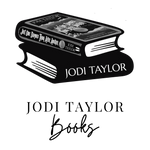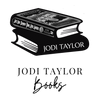History, True or False?
OK everyone – hope you’re all well and hanging in there.
Something quite serious today.
History and how important is it in our lives?
When I first started writing, back in 2011/2012 there was no such thing as Fake History. Yes, there was ‘spin’ of course, as politicians attempted to persuade us to regard their most recent disasters in a more favourable light, but most of us just laughed and went on our way.
It seemed to me while writing Just One Damned Thing After Another that I had to give historians a good reason for doing what they do – other than because they have a happy mix of every personality disorder known to man and a near terminal death wish, of course – so I simply had Dr Bairstow vaguely say that it was always important to know the truth. The often-inconvenient truth – not the religious, politically correct, politically expedient, written by the victors truth, but the real truth. Everyone at St Mary’s solemnly nodded their heads and cantered off to wreak more havoc on the already battered timeline.
It never occurred to me – not in a million years – that in such a short time we would move into the realms of real Fake History. Where sometimes the events of only last week could be denied/altered/ignored/misrepresented and so on. Right in front of our eyes, sometimes.
I was scribbling away the other day – a scribble a day keeps the electrodes away – and thinking about this because it’s a small part of the plot in Another Time – Another Place (the next St Mary's book). It seemed to me that because we can’t always trust our leaders – bless them – it is essential to know the truth.
And then – because I was born to argue – I thought, actually, is it? How important is it to know the truth?
Consider – Country A and Country B. They’re nice little countries, quite well off as countries go and the people are pleasant and friendly and you’d really like them if you ever met.
Except – they’ve been at war since the year dot. The history of all the military engagements is taught at school. Each side instructs their people not to trust the other. That they’re a bunch of treacherous fanatics who would sell their own grandmother if it suited them. Each side is brought up hating the other. They don’t fight all the time, of course, but every now and then it flares up – it’s the anniversary of the famous Massacre of Town C – conveniently ignoring the fact they lose more citizens in a week to road traffic accidents than to the supposed massacre which might never actually have occurred – and off they go again on the Treadmill of War.
Could it be argued that without a knowledge of previous history the inhabitants of each country would encounter each other with open minds and possibly quite like each other? The events of the past would literally be lost in the mists of time and without the Millstone of Memory around their necks, would they stop blowing each other to pieces and build trading and cultural relationships instead?
Or should we always remember our past? And if we do, are we intelligent and tolerant enough to rise above it?
Or should we actively change our past? Should the films and books of Countries A and B show them as equal and honourable partners, not only treating each other with respect now, but in the past as well. Wishful thinking, I know, and dangerous, too but does this give them something to aspire to?
Or would that be dishonouring all those who died in the conflict? Is this sweeping war and death under the carpet? As Max says, ‘Looking away when bad things happen does not mean that bad things cease to happen?’
Should their cultures reflect the way they wish things were – or the way they actually are? And if the latter – how do they move on?
If everyone from A and B woke up one morning with their memories erased – would this be such a bad thing? Is it ever acceptable to change history? I don’t just mean politicians spinning events to make things seem if not better, then at least less bad, but actually erase or rewrite history? Given that we seem doomed to repeat the same mistakes over and over again, what would happen if we were able to sever our link with the past and look only forwards? Or will we always find something to fight about?
On the other hand – did I mention I was born to argue? – if real history is to be swept aside who is to say what should replace it? A carefully edited version that everyone would be comfortable with? And if so, how long until someone dreamed up a better version and it’s replaced again. At least the old ‘warts and all’ history had one virtue – that of truth.
So – does history serve a useful purpose? Does it enable us to learn from our mistakes? Or is it actually a major factor in the never-ending wars of our species? Would we be better off without it?









Historical amnesia can occur very quickly after an event. WW2 is a prime example. I am currently writing a novel which treats, in part, about French amnesia about collaboration during the German occupation. When I first visited Dieppe in 1949, nobody would admit that there had been any collaboration, and it took many years before Germany acknowledged the horrors of the Nazi era. It isn’t, however, just “Johnny foreigner” who forgets/rewrites history. We’ve just remembered VE Day and there has been lots about the courage and sacrifice. Not a lot about the war crimes by our own “brave boys”, the levels of criminal activity and looting during the Blitz and on and on. At least JT has given us a bloody-guts-and-mud story about WW1.
This is one of those conundrums that, if you think about it long enough, can leave one wondering “wait. Which point of view was I arguing for?” I was wondering….if babies are born kind and considerate (which I read they were!) how about if we never grew up? Would that help?? It babies need to learn to be unkind…..and then I remember a SFbook I read (how come so much of what is happening leads me back to a memory of a book I read?) where no one had an unhappy life. There were no more great books, music, discoveries….seems the story concluded unhappiness had to happen, people had to rise above the bad things, and….
Wait. What were we talking about?
I would rather know each side’s opinion and make my own mind up, after all that is what starts debates about an event and means we can learn more from each other’s opinions. I don’t believe that there is ever a ‘right’ side or a ‘wrong’ side and the human ability to carry on such discord through generations is the reason old ingrained hatreds rule the present (when ever the present is) Some on eonce told me that no matter how much we believe ourselves to be non-racist we are all racist in one way or another, at the time I got very angry but as the years have past I now completely agree with him. Whether it is born of a generational belief or or a present day reaction, nothing will ever change that. Delete history all you wish but I can guarantee that racism will always be there.
A couple of years ago, in a discussion at work, a chap said that all that really separates us from animals is our recollection of history, either oral, or particularly, written.
Sadly, when it comes to the whole taught-in-schools debate, I know about that 1st hand. I live in Northern Ireland and despair sometimes of the me versus you thinking that our “leaders” insist on foisting upon us. Still we carry on in hope that some day, hopefully soon, we can all get along.
Leave a comment